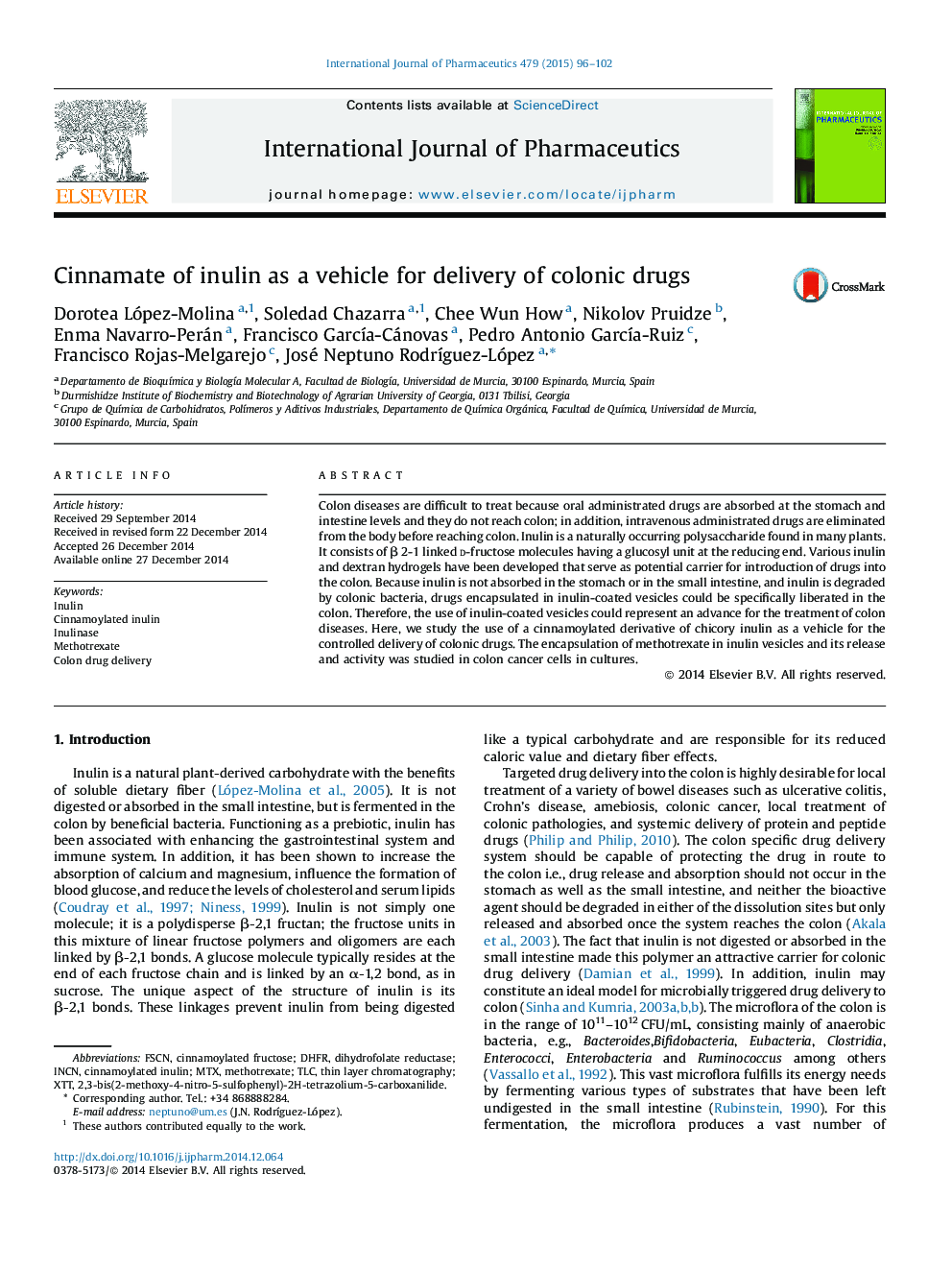| Article ID | Journal | Published Year | Pages | File Type |
|---|---|---|---|---|
| 2501552 | International Journal of Pharmaceutics | 2015 | 7 Pages |
Colon diseases are difficult to treat because oral administrated drugs are absorbed at the stomach and intestine levels and they do not reach colon; in addition, intravenous administrated drugs are eliminated from the body before reaching colon. Inulin is a naturally occurring polysaccharide found in many plants. It consists of β 2-1 linked d-fructose molecules having a glucosyl unit at the reducing end. Various inulin and dextran hydrogels have been developed that serve as potential carrier for introduction of drugs into the colon. Because inulin is not absorbed in the stomach or in the small intestine, and inulin is degraded by colonic bacteria, drugs encapsulated in inulin-coated vesicles could be specifically liberated in the colon. Therefore, the use of inulin-coated vesicles could represent an advance for the treatment of colon diseases. Here, we study the use of a cinnamoylated derivative of chicory inulin as a vehicle for the controlled delivery of colonic drugs. The encapsulation of methotrexate in inulin vesicles and its release and activity was studied in colon cancer cells in cultures.
Graphical abstractFigure optionsDownload full-size imageDownload high-quality image (281 K)Download as PowerPoint slide
